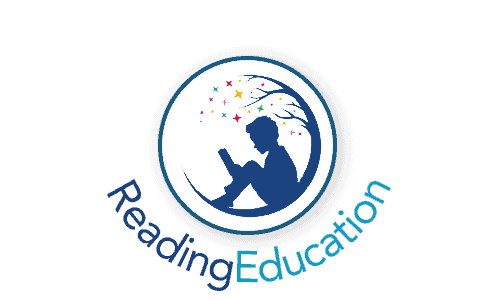Outside of health, our child’s education and development is one of our biggest worries as parents. Thoughts such as: ’What if they don’t progress as quickly as other children?’, ‘What if they struggle to develop as quickly as is expected?’, ‘What if my child struggles to read?’ and ‘What can I do if my child is struggling to read?’ are commonplace. But what happens if your fears are realised, and your child is developing at a slower rate than others?
One question we are asked on a frequent basis is whether or not it’s normal for a seven-year-old child not to be able to read. So, in today’s piece, we’re going to take an in-depth look at this question and provide you with all the information you need to deal with this situation.
My Seven-Year-Old Can’t Read – Is This Normal?
We’ll cut to the chase and answer this question straight away: It isn’t normal for a seven-year-old to not be able to read. By the age of seven, a child should have the ability to read basic books (aimed at children) and should be in the early stages of being able to read more complex kids books, such as those with paragraphs and chapters of text. Of course, it is normal for children at this age to struggle with words and have some difficulty with reading fluency, but all-in-all, a seven-year-old should be able to read to at the very least a basic level.
Ok, that might seem like a blunt and to-the-point answer – and one that might shock and concern a few readers – but in order to help you, we must be honest. By the age of eight (third grade), children are typically able to read perfectly fluently; therefore if they’re struggling to read at all by the age of seven, it’s unlikely they’ll reach complete fluency within a year (although it, of course, possible).
What’s The Normal Reading Level For a Seven-Year-old?
By the age of seven, a child should be reading all the time; in fact, they should also want to read all the time too. A significant proportion of children will develop a fascination with reading and will have the desire to read as much as they can. By the age of seven, curiosity and intrigue often fuels the desire to learn, which often manifests itself in the inclination to read as much as possible.
Children want to explore the world around them, find explanations for things they don’t understand, and learn more about things they’re interested in, such as animals, countries, nature, sports, cars…the list is endless. But it doesn’t stop there, a seven-year-old’s imagination is also firing on all cylinders, which is often expressed through the desire to read not only stories but also create their own.
Although a seven-year-old will typically not have the ability to read flawlessly, they will have the reading skills tackle chapter books written for children and understand what is going in the story, which is a key point. By this age, children should not only have basic reading skills, but they should also be able to make sense of what they’re reading. The more reading a child does, the quicker they will develop reading and cognitive thinking skills, which is why it is best to progress to text-based books (rather than sticking within picture books) as soon as a child is ready.
In the early years of reading development, much focus is on repetition, as this is something that can help to cement early reading comprehension. However, as a child moves up through school into second and third grade, varying the type and content of books will help to develop their reading ability further, in addition to boosting confidence. It is not typically until third grade that children are expected to be able to read completely fluently, however, so seven-year-olds certainly aren’t expected to be 100% fluent when reading aloud.
All of the above may seem a little overwhelming if your child isn’t yet at the ‘expected’ level of a seven-year-old. However, this shouldn’t be a huge cause for concern given that children develop at varying rates and that there are many things you can do to assist your child’s reading development. Regardless of where your child sits on the reading development spectrum, all aspects of this vital life skills should be worked on consistently – both at school and at home. Many parents believe that the majority of learning takes place at school; however, this isn’t actually the case. Although children do spend several hours each day, five days per week at school, they spend equal time at home – if not more. Therefore, you should take every opportunity you can to boost their reading skill and confidence.
Why Might A Child Be Falling Behind?
Before we get onto the methods, strategies, and techniques that you can employ to help your child improve their reading skills, let’s take a look at the most common issues that can hinder a seven-year-old’s ability to read to the same level as their peers:
Dyslexia: This is probably the biggest reason for a lack of reading ability by the age of seven. Dyslexia is a complex learning disorder that stops a child from correctly seeing words, which often results in both confusion and frustration.
ADHD: Children with Attention Deficit Hyperactivity Disorder are unable to focus and concentrate for long enough periods on a book or other form of text, which will, of course, inhibit the speed at which they learn.
VPD (Visual Processing Disorders): VPD and similar problems can make recognising letters and distinguishing letters from numbers (and vice versa) very difficult, which will slow down the speed at which a child is able to fully grasp the alphabet, letter sounds, word sounds, and ultimately the ability to read.
Vision problems: Although this may seem an obvious one, even very minor vision-elated problems can have a dramatic impact on reading ability. Furthermore, if your child sees blurred texts, the motivation to read will soon dissipate. If you suspect their lack of reading skills might be eye-related, take a trip to the opticians for a full examination. Headaches are often a tell-tale sign of vision issues.
How do you know if your child is affected by any of the above or other issues that are adversely affecting their reading progression? The best place to start is by speaking to their teacher to see if they’re aware of any problems or whether they have any inklings as to what might be at the core of your child’s lack of reading ability. Teachers will always know the best route to take and will discuss several options with you.
How To Help A Struggling Seven-Year-Old To Read

As a parent, you want to help your child through all of life’s trials and tribulations, and luckily there are several things you can do to help your child boost their reading skills. Here are a few examples:
Be a Bookworm Yourself
One of the most adorable and endearing characteristics child have is mimicking and picking up things from others, particularly adults who they’re around on a frequent basis, i.e. you. Of course, this does have its downsides too; if you’ve shouted a curse word or phrase in their presence and heard them repeat it the next day, you’ll know exactly what I mean! Children are often affectionately referred to as parrots or echoes, as they just love to copy what their elders do.
Children learn exceptionally quickly by watching and mimicking others – and this is no different for reading. If you spend vast quantities of your free time lazing in front of the TV watching Netflix, your child will naturally want to do the same. Whereas if you limit the amount of time you interact with technology (smartphones, tablets, laptops, TVs etc.) and spend much of your free time reading, it’s more likely that your child will have a desire to read.
Even if you’re not the biggest fan of reading, it can pay to have books, magazines and other reading materials in each room of the house, i.e. readily available should you need it. Reading must always be viewed and spoken about as something that is fun and interesting. By having a positive view of reading, you’ll be encouraging your little one to read completely subconsciously.
Fun, Fun, Fun!
I’ll say that one more time: Fun! ‘Fun’ should be your watchword where reading is concerned. If reading isn’t something that is enjoyable, your child simply won’t have the inclination or motivation to pick up a book or magazine either at school or at home. A desire to read is typically something that must be nurtured in a child, particularly in those who are struggling to develop their reading skills.
There are an almost infinite ways that reading can be made into something fun. If you’re just starting out, why not try flashcards with pictures of the words drawn on them? This will help your child associate an image with a word. Even alphabet cereal or foods can help your child gain a better grasp of letters and words, which will, in turn, help to enhance their overall reading development and push them that little bit closer to gaining the skills required to read.
Remember, reading should in no way, shape, or form, feel like it’s a burden or a chore. Whether you’re an adult or a child, tasks seem a lot easier if they’re fun, so be sure to keep that in mindset throughout the learning process.
Patience and Presence
As a parent, your job is to be there for your child throughout their learning development. One of the most important things you can do to aid their reading development is to help them select the right books. Doing this is often quite tricky as it’s hard to know exactly where your child’s reading skills currently sit. As a general piece of advice, it is often recommended that children should be able to read with 90-95% accuracy, as this allows them to build their confidence, while at the same time tackle new and difficult words. In some instances, those struggling to read will opt for more challenging books in order to save face. It’s essential to strike a balance between allowing their independence when choosing a book and ensuring it’s at the right level for their current ability.
The best way to gauge the level of your seven-year-old’s reading ability is to read with them. Reading a book or story aloud with them will make a huge difference. If a child is struggling, it gives them a huge boost knowing an adult is there to help them when they’re stuck and provide guidance as they read. Confidence plays a massive role in reading, so proving your child with this form of comfort blanket can work wonders.
Learning to read doesn’t happen overnight; therefore, a degree of patience is required to guide your child through the learning process. Showing them love and patience will reduce pressure and decrease the feeling of failure, both of which will boost confidence and boost feelings of success and joy when they start to make progress. Setting goals is something that we certainly advise, but it’s essential not to stick to these too rigidly and always go at a pace the suits your little one.
Seven-Year-Old Struggling To Read: A Summary
As a parent or caregiver, it’s vital to know that the inability to read at the age of seven isn’t the end of the world. While it is true that the vast majority of seven-year-olds will have some degree of reading ability by the time they reach second grade, it is also true that children develop at different rates. Don’t be alarmed, and always work with your child’s teachers to discover the root cause of the issue and which remedies can be used to foster your child’s reading development skills.

